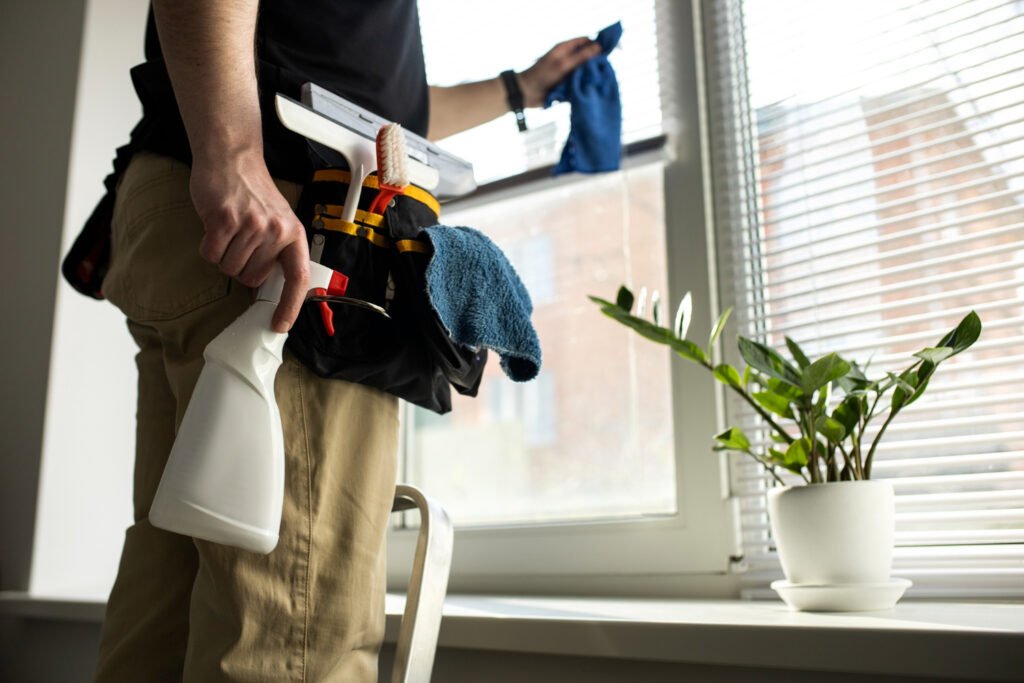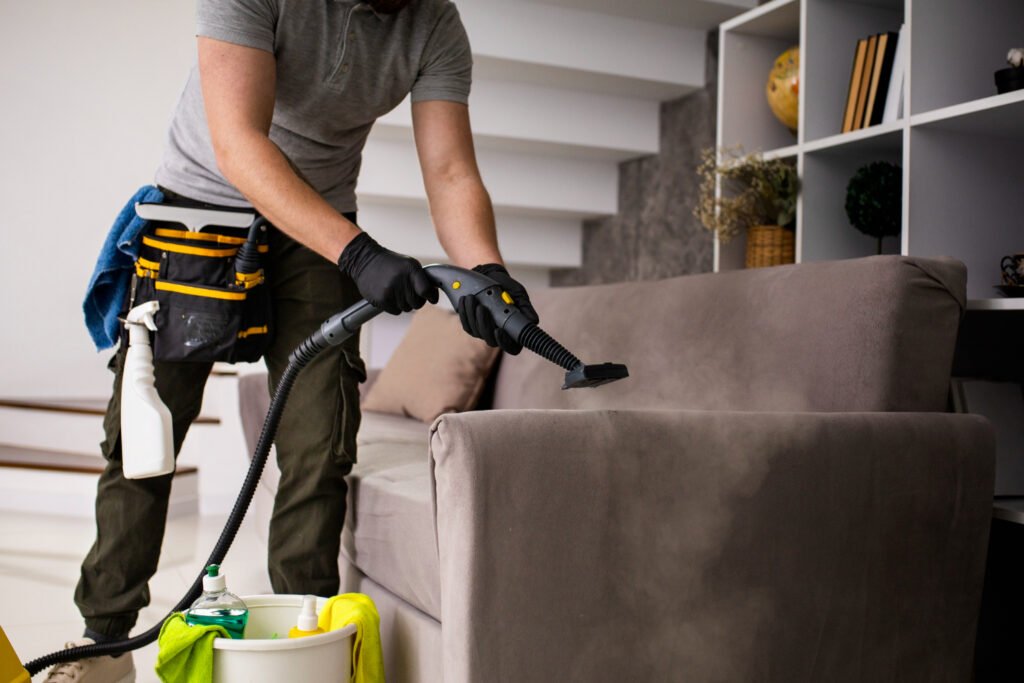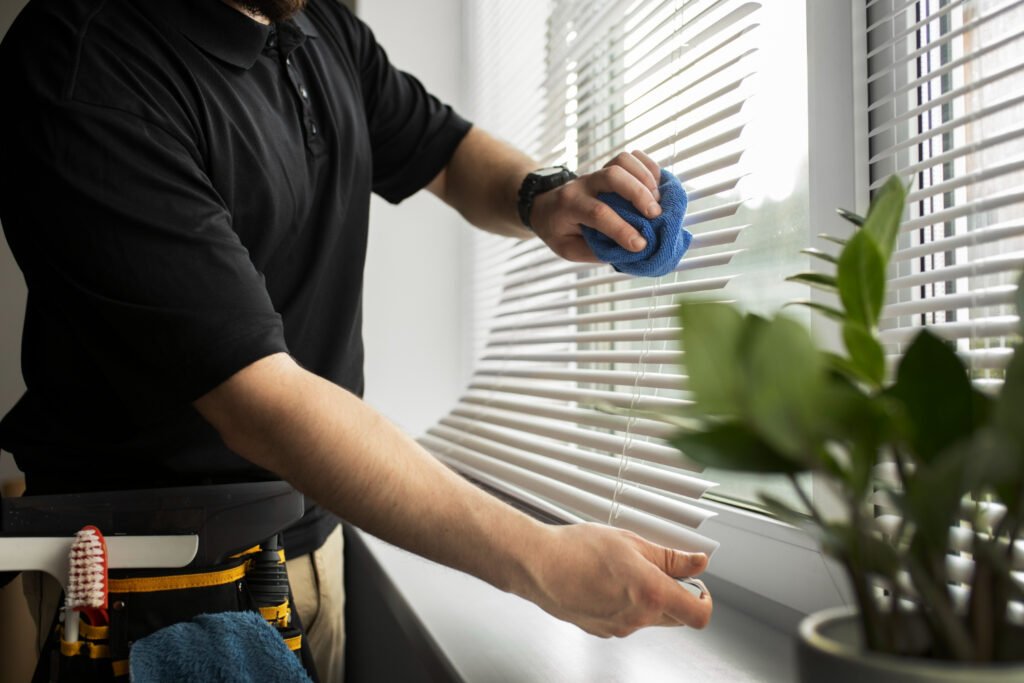
The cost of reactive hosting
Emergency call-outs cost more than parts, stress your team, and risk cancellations. A light preventive schedule avoids surprises and protects reviews (and insurance claims).
The Monthly 60-Minute Maintenance Cycle
Week 1 – Safety & Utilities
- Test smoke/CO alarms; replace batteries every 6 months.
- Inspect fire extinguisher gauge.
- Check GFCI outlets, trip/reset.
- Look for leaks: under sinks, toilet bases, hot-water closet.
Week 2 – Appliances & Comfort
- Clean AC filters; vacuum fridge condenser; descale kettle/coffee machine.
- Run a hot wash with machine cleaner; wipe door seals.
- Inspect remote controls, replace batteries proactively.
Week 3 – Fixtures & Wear
- Tighten loose handles/hinges; lube door locks.
- Re-grout small bathroom spots; check caulking.
- Touch-up paint kit ready (match codes on lid).
Week 4 – Exterior & Pests
- Sweep entrances/balconies; clear drains.
- Inspect outdoor lighting & timer settings.
- Place pest monitors; schedule seasonal treatments.
Pro Tip: Align one cycle with a deep clean so cleaners can flag issues; add a shared photo log (folder per room).
The Smart Inventory Blueprint

A-B-C tiers
- A (Essentials, never out): TP, paper towels, trash liners, hand/body soap, dish tabs, salt/pepper, cooking oil spray, tea/coffee, laundry pods.
- B (Guest-delighters): makeup towels, spare phone chargers, welcome snacks, board games.
- C (Back-of-house): bulbs, batteries, filters, first-aid refills.
Par levels & bins
- Set par per stay (e.g., TP 2 rolls/bedroom + 1 spare).
- Use labeled bins per room (Kitchen, Bath, Laundry). Restock by bin, not item to save time.
Linen math that prevents bottlenecks
Keep 3× sets per bed (on bed, in laundry, in reserve). Colour-tag by size to reduce mix-ups. Retire stained items to a separate “cleaning rags” tote.
Reorder rhythm
- Create a restock sheet with min/max levels; reorder every 2 weeks.
- Subscribe to bulk items with predictable delivery windows.
- Track cost per stay; aim to hold 4–6 weeks of stock, not a warehouse.
Integrating with your cleaning team
- Add a photo-first report step at the end of each turnover (5 pics: kitchen, bath, living, bedrooms, entry).
- Cleaners tick off par levels; anything under min is flagged for reorder.
- Provide a maintenance micro-kit: screwdriver set, bulbs, batteries, felt pads, silicone sealant.
What to pre-empt before peak seasons
- Hot climates: AC service, outdoor furniture screws, shade checks.
- Wet seasons: roof/gutter inspection, dehumidifier maintenance, anti-mould treatment.
- Holiday peaks: spare tree lights, extra glassware, child-safe decorations.
Metrics that prove the system works

- Issues per 10 stays (target <1)
- Turnover time (hold or reduce)
- Cleaning rework rate (target 0)
- Cleanliness & accuracy star ratings
Pair your maintenance cycle with a professional cleaning partner—predictable standards mean fewer surprises and happier guests.
- Isn’t this overkill for a studio? The smaller the space, the faster something feels “off.” A 60-minute monthly pass is plenty.
- What’s the first thing to buy? A labelled bin system and a battery/bulb bundle—cheap fixes that remove most mid-stay headaches.